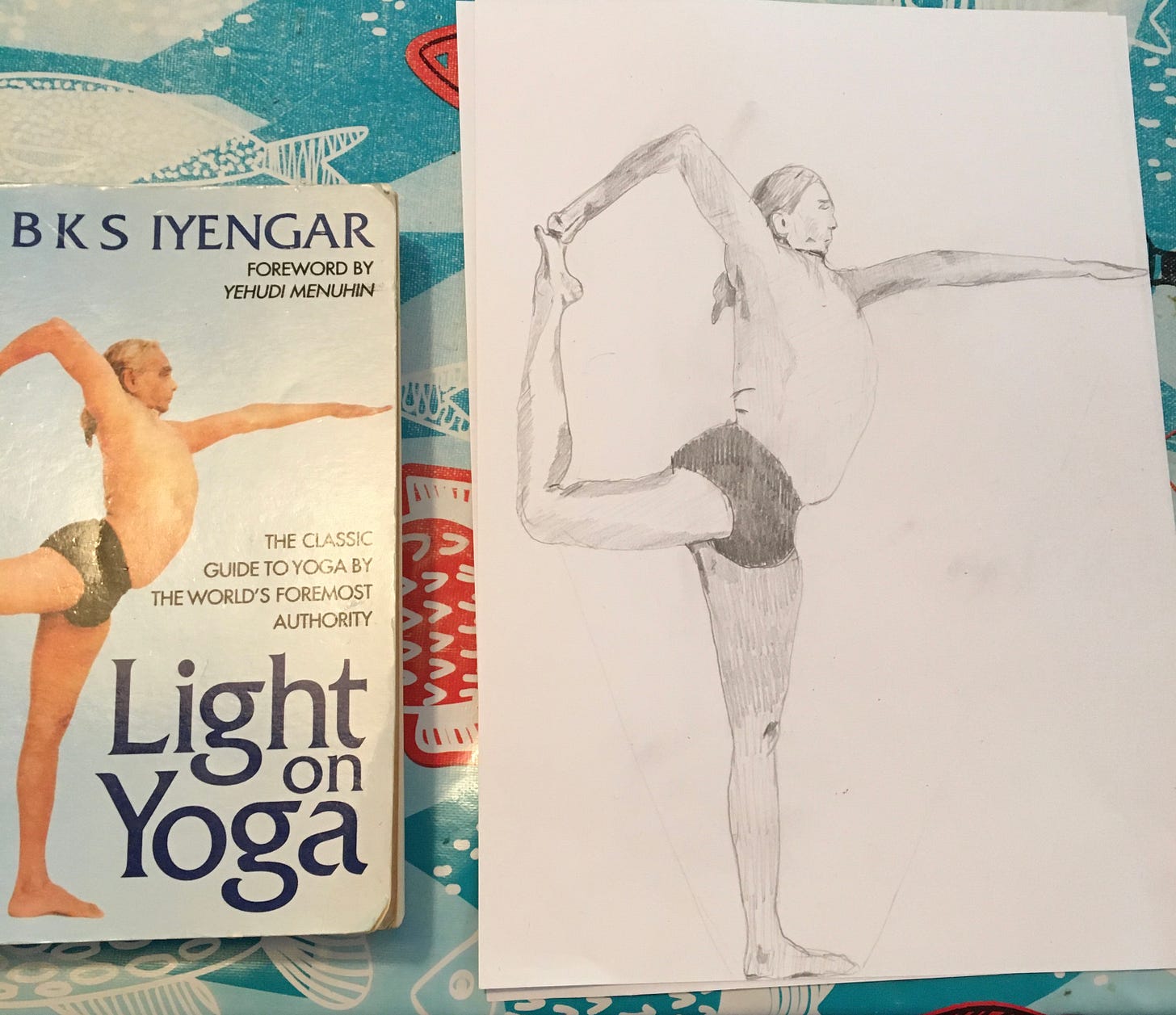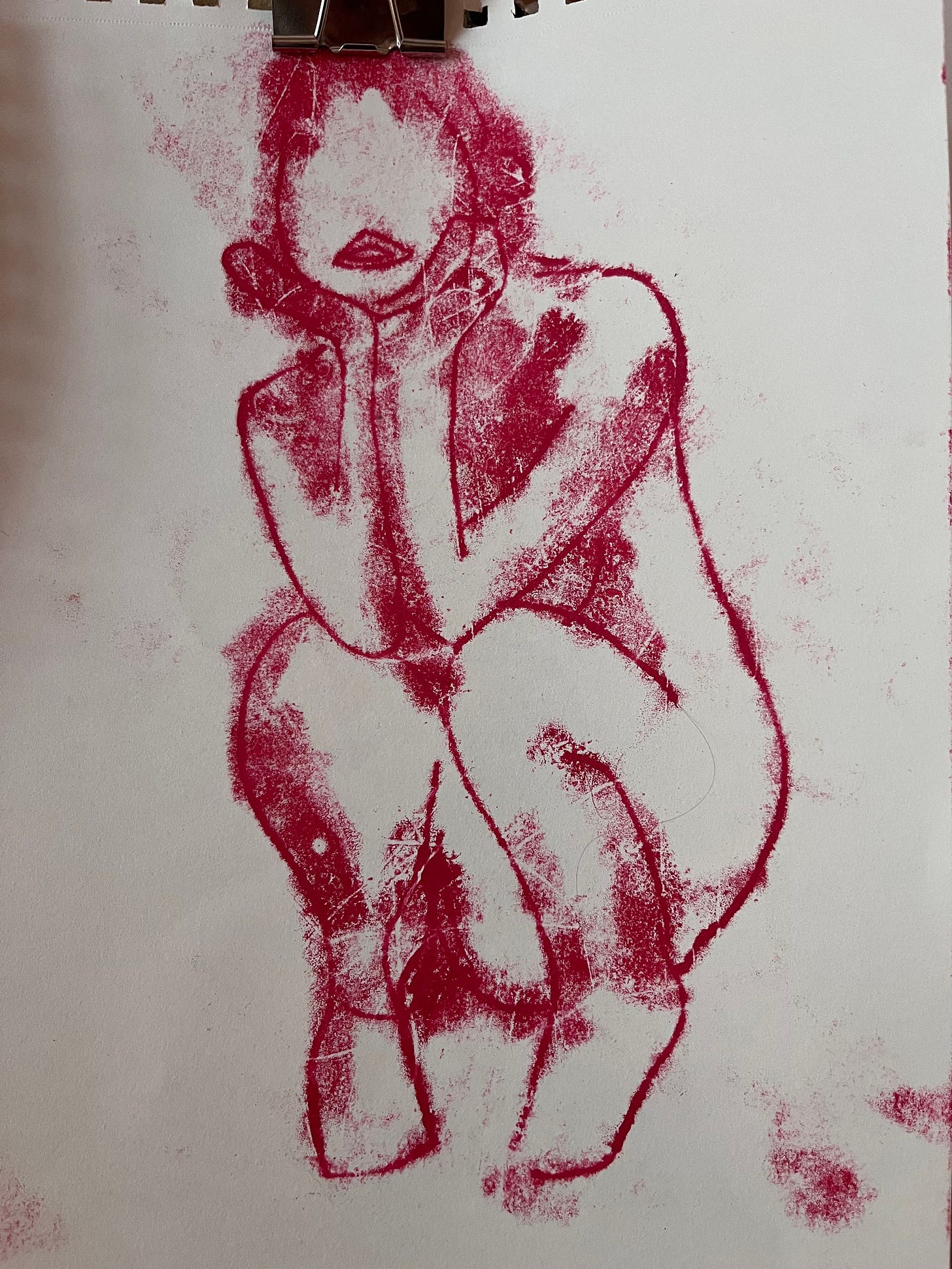The swelling in my ankle had only just gone down, weeks after I had fallen on the ice. I still couldn’t put much pressure on my foot but I wanted to return to my weekly yoga class as my body was seizing up. I told the teacher that I would have to take it easy. About 10 minutes into the class, just after we had done the welcoming “Oms”, I was startled out of my relaxed state. “Why can’t you just do the exercises like everybody else?” shouted the perfectly-manicured woman lying on the mat next to me, visibly enraged. I was so shocked that I just stammered a reply: “Because I am injured.” The yoga teacher, probably also rattled by the outburst, carried on with the class but did help me with modifications to the poses to make them easier on my ankle.
I have stopped going to that yoga class in case I encounter the shouting lady again. The incident made me feel that the Iyengar style of yoga I practised for 10 years has been warped by western ideals of striving and achievement. Iyengar yoga is very focused on making micro adjustments to the position of each limb in the quest for the perfect pose. It is the ideal yoga for hypercritical overachievers. But my tight hamstrings and stiff hips meant that I felt I was always falling short, even after hours of pain on the mat.
My imperfect sketch of BKS Iyengar
Perhaps the shouting lady was suffering from “yogarexia” – practising yoga to excess. The experience made me realise that I would rather spend my leisure doing something more joyful like rollerblading, but it also made me reflect on the spread of perfectionist self-optimisation to so many areas of life.
There has been a rise in the number of people experiencing "multidimensional perfectionism" since the mid-1990s, according to research in the US and the UK.
Thomas Curran, a professor at the London School of Economics, puts that down to the spread of globalisation and consumer culture, hypercharged by social media.
“In the past we were judged more on a local scale, but with the opening of economies what we are seeing is that people are being exposed to these additional global ideals of perfection,” he said.
Winners and losers of capitalism
Curran, himself a recovering perfectionist, notes that capitalism is based on the idea of scarcity: “A feeling of ‘not enough’ is a prerequisite of system.”
Political philosopher Michael Sandel makes a similar point in his brilliant book The Tyranny of Merit, arguing that meritocratic capitalism has created a permanent state of competition within society. This system sustains an order of winners and losers, “breeding hubris and self-congratulation among the former and chronically low self-worth among the latter”
Curran connects the spread of perfectionism to the explosion of mental illnesses such as eating disorders, anxiety, and depression – particularly among young people.
Three types of perfectionism
Psychologists differentiate between three types of perfectionism:
- Self-oriented: inflicted from within.
- Other-oriented: projected onto others.
- Socially prescribed: believe others expect perfection.
The third type seems to be the most painful.
“Socially prescribed perfectionists don’t feel valued in social situations and have a chronic need for other people’s approval, while being extremely down on their implicit value," Curran says.
I suffer most from the self-oriented variety, which is why I kept tormenting myself with yoga for so long. But it is all relative. My partner and one of my sons say my sloppy way of stacking the dishwasher would suggest I am not really a perfectionist at all.
Procrastination paralysis
It is a topic which keeps coming up in my coaching: three of the five people I am supporting at the moment say they believe perfectionism is holding them back.
It can so often lead to procrastination and even decision paralysis. My son asked me to help him last winter with a school photography project at a local train station. He hesitated before taking every picture because he wanted to get the perfect angle, but I encouraged him to get lots of shots we could choose from later. He was pretty grumpy but later thanked me and got a good grade for the project (although not the full marks that the perfectionist in him had been hoping for).
Psychologist Stefanie Stahl advises her clients to examine the reasons they are striving for perfection:
“Is it just to do with the task at hand? Or are you trying to limit the possibility of attack? Or perhaps you want to be admired? For who, apart from yourself, is it important to be perfect? What percent is it just about yourself?”
“What could you do with your remaining energy and time if you could allow yourself to be ‘just’ good? Are you afraid of boredom or painful memories? Or are you suppressing problems by hiding in work?”
Perfectly imperfect
I recommend taking up hobbies where there is no pressure to achieve mastery, like the life drawing class where we only have the length of one song to capture a pose before the model moves. We mostly produce rough sketches and are forced to abandon much attention to detail. Two hours are gone in a flash. The print below was the best of the bunch but most of the others will end up in the bin.
“Clutter and mess show us that life is being lived. Perfectionism is a mean, frozen form of idealism, while messes are the artist’s true friend,” writes Anne Lamott.
A friend I met on a fellowship in Spain taught me my most important lesson in fighting perfectionism in my writing: when she has been tinkering for too long on a post, she uses her “F&@*-it finger” and just hits publish. So that is what I am going to do now..
What I have been reading:
The Patriarchs - How Men came to Rule by Angela Saini - an investigation into the history of male domination, with fascinating explorations of matriarchal societies among Native Americans and in India, and ancient archaeological sites in today’s Turkey, plus an examination of the legacy of gender equality policies under Communism in eastern Europe. She ends on a positive note:
“Some will claim that oppression is permanently woven into who we are. They will say that humans are inherently selfish and violent, that entire categories of people are naturally dominant or subordinate. I have to ask: would we still manage to care about each other so much if that were true?”
The Seven Moons of Maali Almeida by Shehan Karunatilaka - I very rarely abandon a novel but I really struggled with this Booker Prize winner written from the perspective of the ghost of a war photographer in Sri Lanka who is trying to find out who killed him. Should I give it another chance?











Thanks Kate. Love the fact you are complementing your writing with video now. I've been trying to pluck up courage to do that too. We need to compare notes!
Nice, Emma! I've been writing a lot about anti-perfectionism, too. It's so important in the world of music and creativity. You're not doing it right if you never make mistakes x